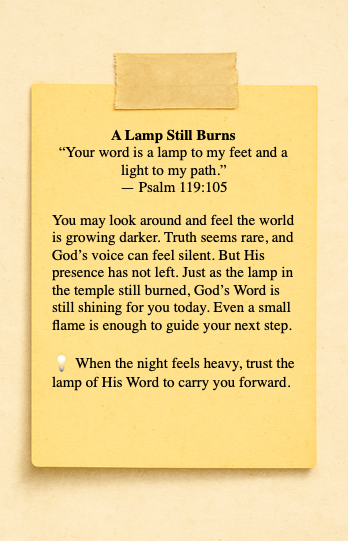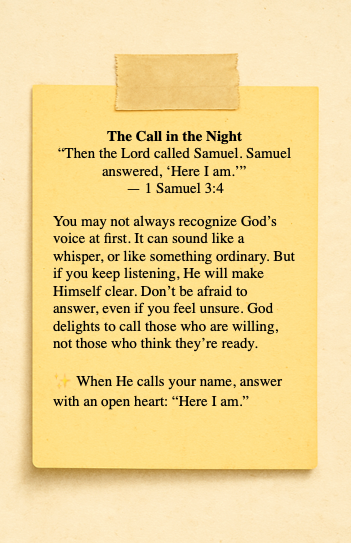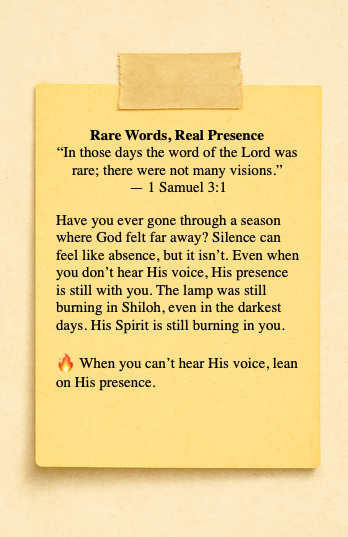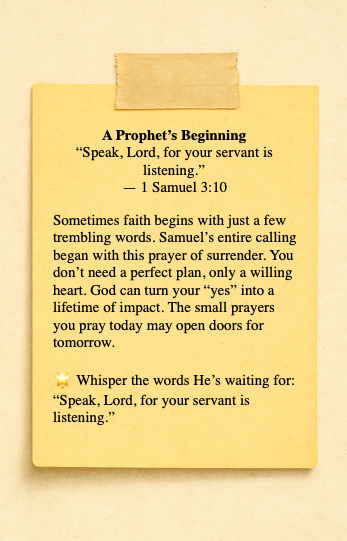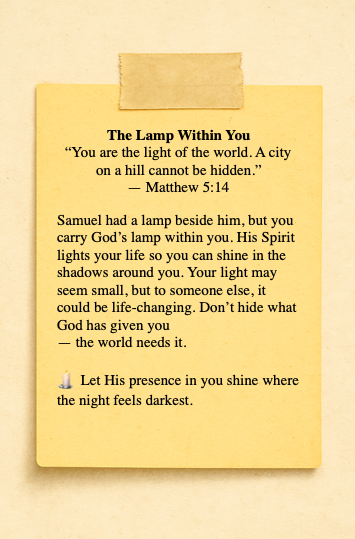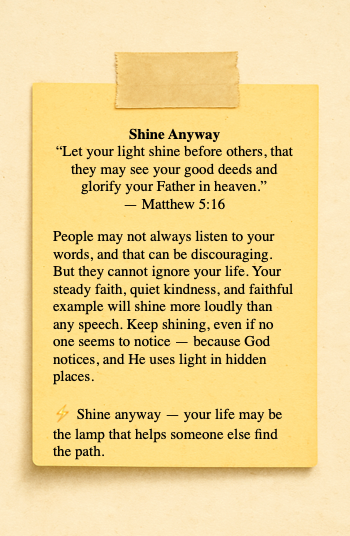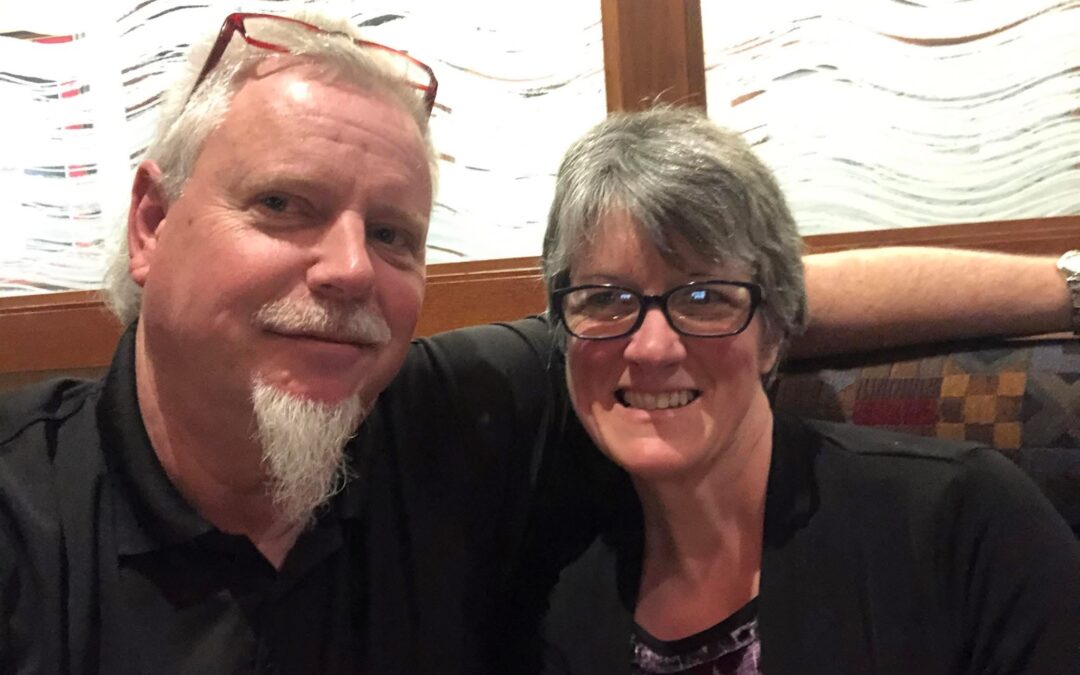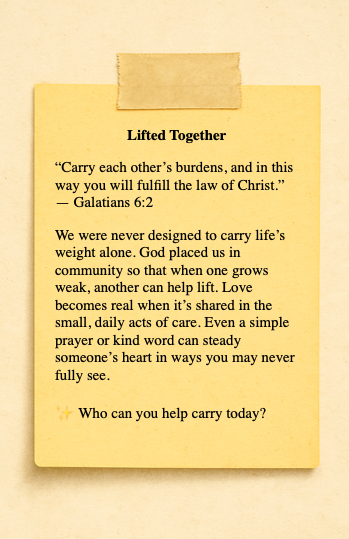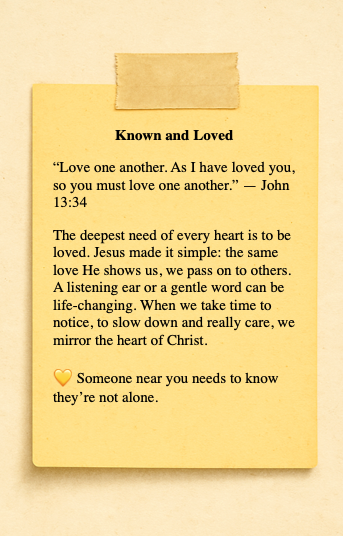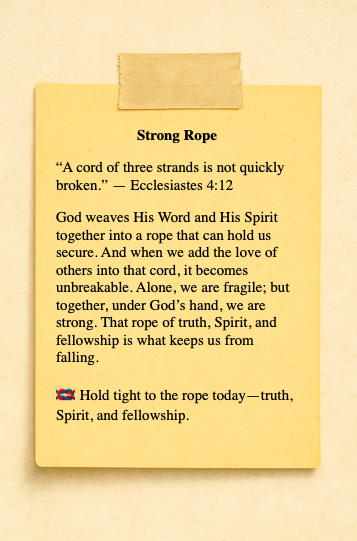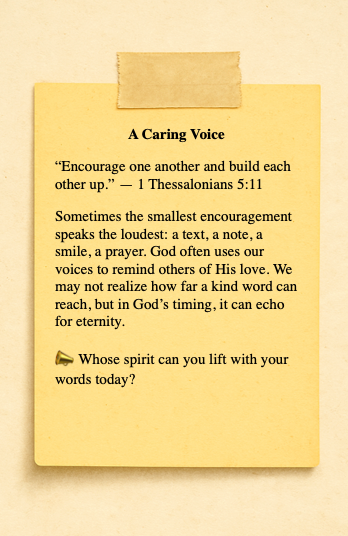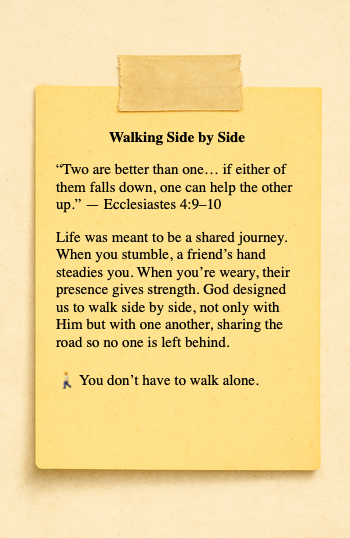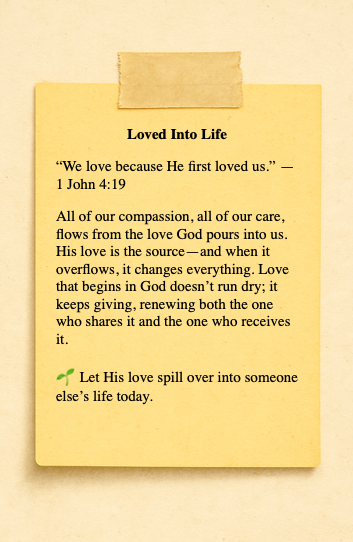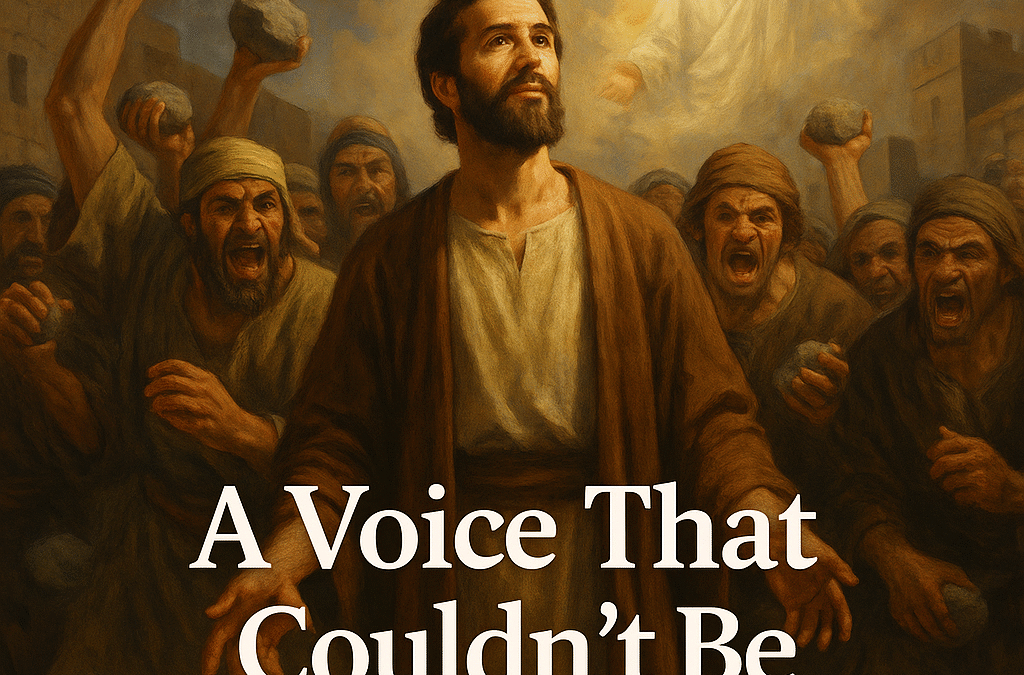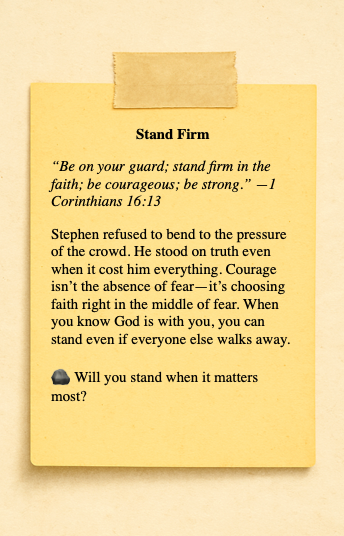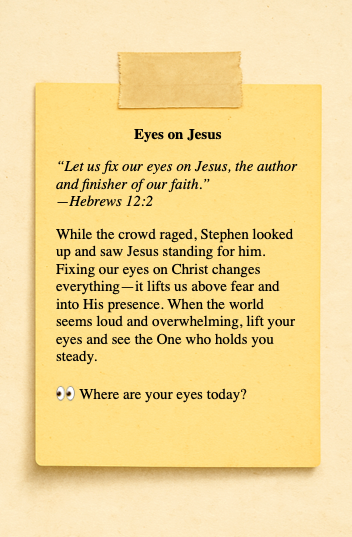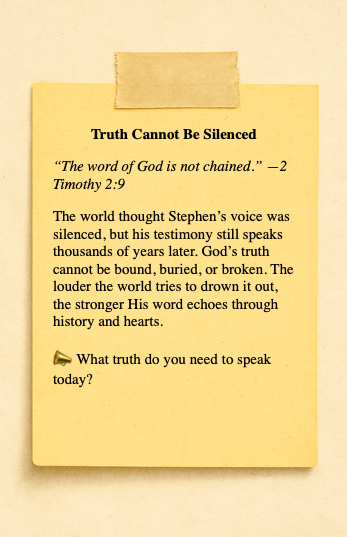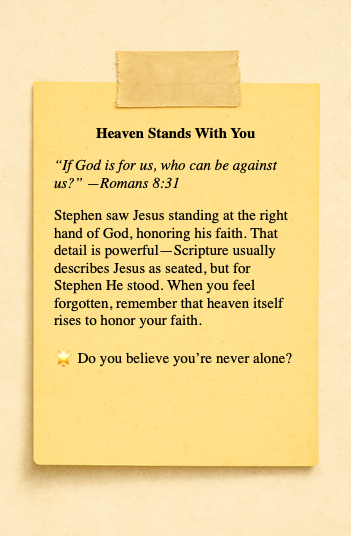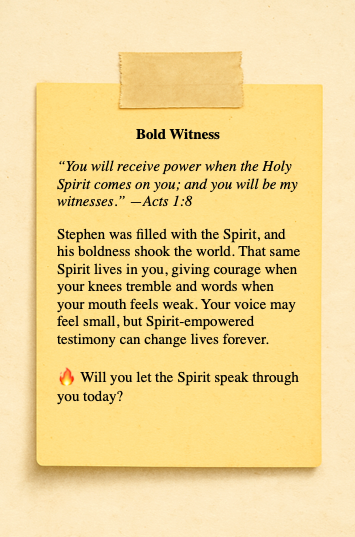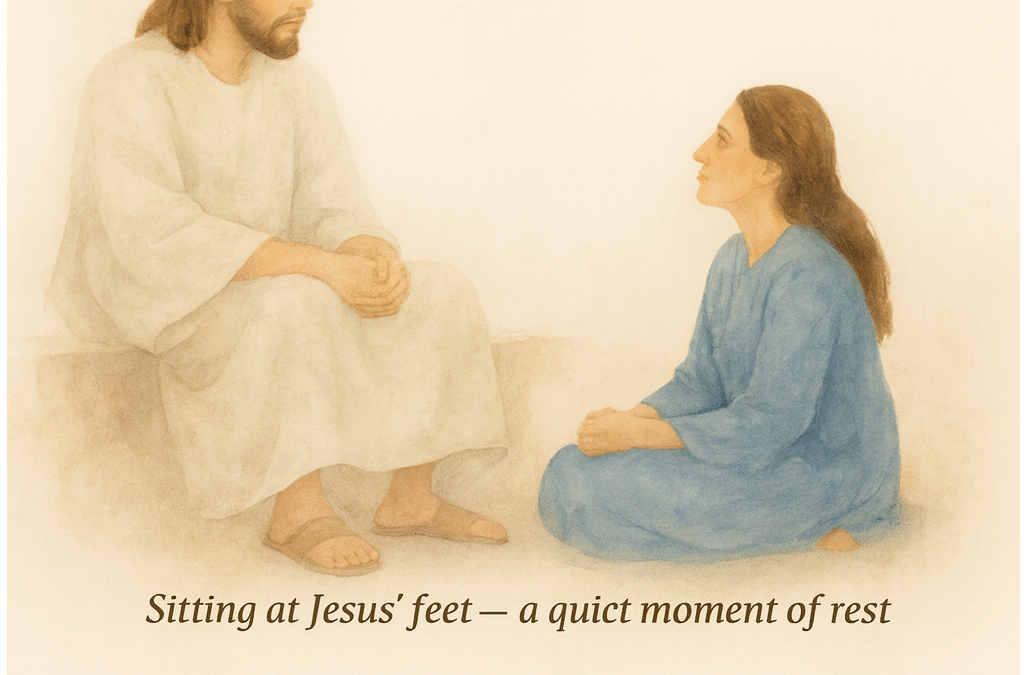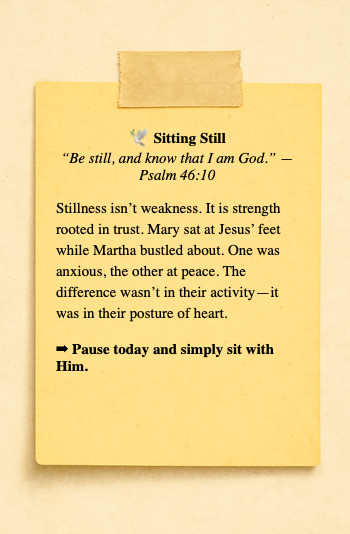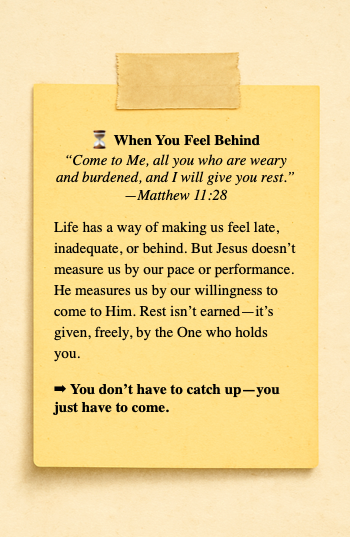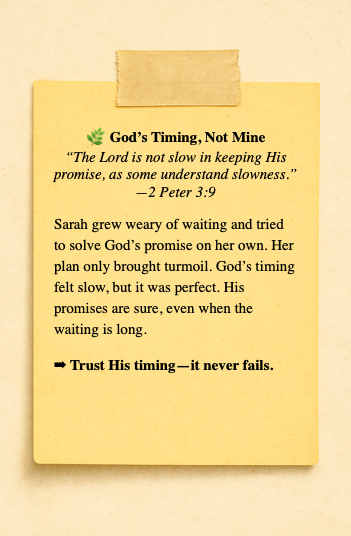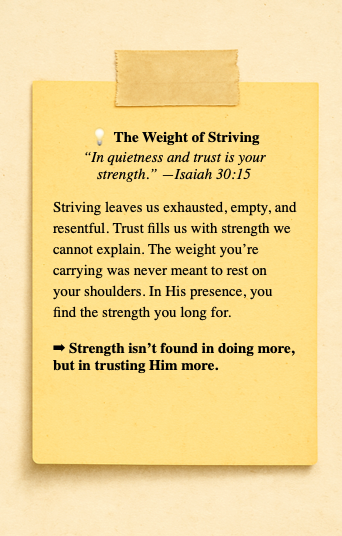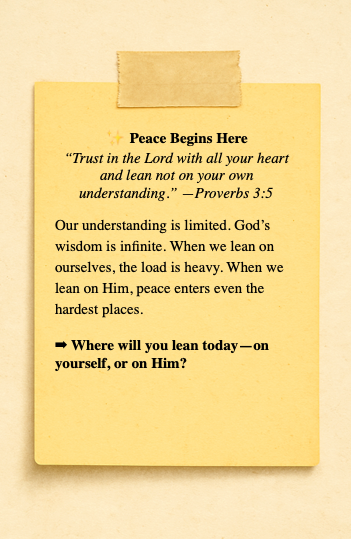
Little Lamps in a Dark World
Little Lamps in a Dark World
Listen to the Devotional
Press play to hear the full devotional, “Little Lamps in a Dark World.”
Little Lamps in a Dark World
“Your word is a lamp to my feet and a light to my path.”
— Psalm 119:105
It was a dark time in Israel’s history. The people’s hearts had grown cold, and “the word of the Lord was rare; there were not many visions.” Corruption filled the priesthood, and spiritual hunger filled the land. Yet in the temple at Shiloh, one small lamp still flickered near the ark of God — a fragile flame burning through the long night.
The old priest Eli lay sleeping, his eyesight nearly gone. His strength was fading, but nearby a young boy named Samuel was bedding down in the Lord’s house. He had served faithfully since childhood, but his ears not used to the sound of God’s voice. In that dim stillness, with only the lamp of God glowing beside him, his life was about to change forever.
In the silence of the night, God called, “Samuel!” The boy bolted upright and ran to Eli’s side. “Here I am,” he said, certain the old priest had called him. But Eli shook his head and sent him back to bed. Again the voice came: “Samuel!” Again the boy ran. And again. Three times he heard the call before Eli understood what was happening. With what little clarity he still had left, Eli told the boy, “Go and lie down, and if He calls you again, say, ‘Speak, Lord, for your servant is listening.’” And when the Lord came and stood, calling as before, “Samuel! Samuel!” the boy answered, “Speak, Lord, for your servant is listening.”
That small lamp in the temple was more than just a light in the night. It symbolized God’s presence — a reminder that though His voice had grown rare, His nearness had not departed. And this night was only the beginning. Samuel would carry a hard word to Eli’s house, call Israel to repentance at Mizpah, and later anoint first Saul and then David as king. He would grow into a prophet who carried God’s Word to a people who would not listen — or would never listen — but he still spoke faithfully, shining light into the darkness of his generation. The lamp beside him burned through the night; the light within him would burn through the years.
The same presence of God that burned beside Samuel burns with us today. Jesus said, “You are the light of the world. A city on a hill cannot be hidden. Neither do people light a lamp and put it under a basket, but on a stand, and it gives light to everyone in the house.” Just as the temple lamp reminded Israel that God was near, our lives now carry His light into the world. We are His lamps, burning with His presence, pushing back the shadows.
We live in a world much like Samuel’s — shadows press in, and the word of God can seem rare. But His light has not gone out. His Word still burns, even if only enough to illuminate the next step. Like Samuel, we don’t always understand what God is doing, but we can choose a posture of readiness: “Here I am.”
Don’t underestimate the power of a little lamp. God’s Word and your obedient heart can shine brighter than you realize. Someone else may find their way because you kept your lamp burning.
People may not listen to your words either, but they cannot ignore your life. Speak anyway. Use words, or use example — but never stop shining your light. Don’t wait for the world to notice — shine where you are, and trust God to do the rest.
